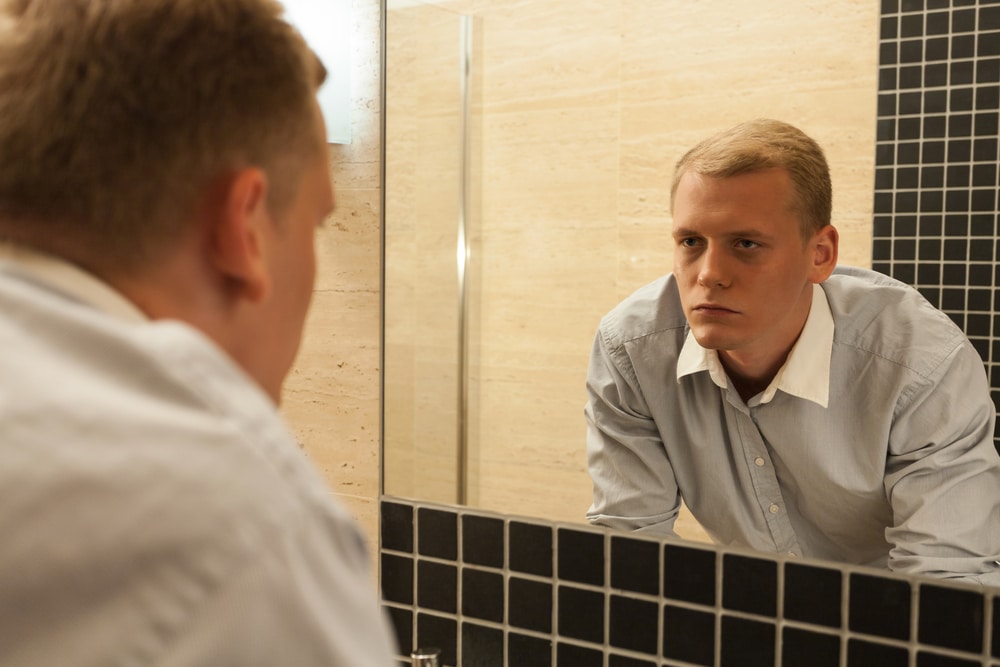Staying on the road of sobriety can be a challenge in itself but with a solid relapse prevention plan it can be more manageable and effective. Relapses can be dangerous and defeating for a previous addict. Behavioral Health Centers is here to help you establish a plan and stick to it for a happier and better life.

Please call our Port Saint Lucie rehab at 772-774-3872 today for substance abuse treatment help
What is a relapse prevention plan?
Relapse prevention plans are an essential part of any alcohol and drug addiction treatment. The plan can help identify personal behavior that could indicate and prevent relapse and maintain sobriety. It describes the ways in which one could overcome these habits and move forward in the future. Most commonly, relapse prevention programs are written documents that someone writes with their team to be shared with their support system, family members or friends. The program outlines a strategy for identifying triggers, learning how to deal with them as well as managing cravings. Relapses are typically not a spontaneous thing.
Common Relapse Triggers (Alcohol and Drug Abuse)
There are many instances where a person may feel urges or cravings to use again. Certain triggers only make these cravings worse. After substance abuse treatment, it is important to avoid certain triggers and learn to deal with them to prevent relapse.
Common triggers of substance abuse relapse include the following:
- Poor self-care – failing to manage stress, sleep and eating patterns, mental health
- Withdrawal symptoms – very common in addicts, includes physical pains, nausea, anxiety, etc.
- People – certain people (particularly those who used)
- Post-acute withdrawal symptoms – anxiety, mood swings, and worsened sleep
- Isolation – being isolated can lead to too many internal thoughts
- Things – certain objects or reminders of when you used to use
- Places – specific places, particularly where you used to buy or use substances
- Relationships and sex – stress or when things go wrong
- Unwanted emotions – hungry, angry, lonely, and tired (also known as H.A.L.T)
- Overconfidence – overall pride and thinking you don’t have a drug or alcohol problem
There is no doubt, that people will experience bumps in the road after recovery, some of which commonly lead to relapse, especially in the early stages. This is why it is important to understand these triggers and cope with them in a healthy way. A relapse prevention plan allows the person to fall back on a set plan and deal with these emotions with a clear frame of mind.

Relapse Stages
Relapse is actually a process and not so much an event. It is important to understand these stages and how they can impact future relapse. Relapse can start weeks or sometimes even months before a physical relapse.
According to the National Institute of Health, there are three main stages of relapse: emotional relapse, mental relapse, and physical relapse. The physical stage is what most people think of when they hear the term ‘relapse’, but the other two stages are just as important.
Emotional Relapse
Emotional relapses are negative emotions and feelings that could potentially lead to a full-blown relapse. Emotional relapse doesn’t necessarily mean you are thinking of using, but if these emotions aren’t addressed, it could lead to the next stage of relapse. Learning healthy coping skills can help you from having these negative emotions.
Common warning signs of emotional relapse include:
- Isolation
- Anxiety
- Anger
- Mood swings
- Defensiveness
- Refusing to ask for help
- Skipping out on meetings
- Bad sleeping habits
- Bad eating habits
- Intolerance
Some of these signs are also symptoms of post-acute withdrawal from substance use disorder (symptoms that occur 1-2 weeks after someone stops using). It is important to recognize these symptoms and try to pull back from them and learn how to cope.
At the emotional relapse stage, self-care is key. Understand the emotional hurdles you are going through and take precautions to improve them. Here are a few tips to keep in mind when you start feeling these symptoms:
- Be aware of your sleeping and eating habits
- Practice relaxation techniques for anxiety and anger
- Don’t be afraid to ask for help from your support group
- Create a routine and stick to it
It is important to take care of these issues during the emotional relapse stage. If a person spends too much time in this stage, they may begin to get exhausted, which will eventually lead to a mental relapse.
Self-care is extremely important for your mental and physical health. With a healthy mind and body, you won’t be thinking about using it again. These tips and techniques can be learned during the recovery process with a laid-out relapse prevention plan.

Mental Health Relapse
A mental relapse occurs when your mind is at a crossroads. After emotional relapse comes to the mental tug-of-war of wanting to use and knowing you shouldn’t. At the beginning of this stage, your mind subconsciously thinks of using but as time goes on, this urge begins to grow and can turn to drug abuse again.
It is important to spot signs of mental relapse and reach out for help. You don’t have to go through it alone. If you notice any of these signs, be aware of them, and don’t be afraid to ask for help.
Common warning signs of mental relapse include:
- Lying
- Thoughts of people, places, or things you used with
- Falling into old habits
- Hanging out with old using friends
- Thoughts of relapse
- Prideful about past use
- Planned relapse (typically around other people’s schedules)
When you see any of the indicators of a potential mental health relapse, you have to act fast and smart. There are a number of techniques that can be used to take control of the situation. Strong urges can be very hard to get control of but it is important that you do.
What tends to happen is a lapse in judgment, the thought that you can control your use ‘just this once’. The next day may come and you might engage in substance use again. This can lead to a dangerous cycle that can lead to the next stage of relapse.
When you are isolated from those around you, mental urges can be much more powerful. Your mind may use that as an excuse to use ‘just this once’. This frame of mind can be dangerous and will lead to more and more instances of using again.
Here are a few tips to manage cravings and mental urges:
- Reach out for help – Speak to a friend or someone in your recovery support group. Opening up about your struggles can help you understand and manage these urges with someone else
- Wait for 30 minutes – Typically these cravings last between 15 and 30 minutes. While it may be tough, just waiting for 30 minutes and staying distracted can help alleviate these urges.
- Distractions – When you get an urge to use again, keep yourself occupied with something else. Taking a walk, going to a meeting or just talking to a friend are all ways to avoid giving in to your craving
- Recover one day at a time – It can be overwhelming to think of long term sobriety. It is better to look at the process just one day at a time. Set goals and meet them, even if it’s for just a day (or even for 30 minutes)
- Practice relaxation techniques – One of the most effective methods of dealing with mental relapse is to relax your mind. This will enable to think clearly and work to cope with your emotions instead of clash with them.
With an effective relapse prevention plan, you can learn to tackle these urges. Managing these emotions can be the difference between a physical relapse and another day of sobriety. It takes time and patience to stay clean.
Physical Relapse
Physical relapse is the final straw and means that you give in to your urges and begin to use or drink again. Without a proper relapse prevention plan, a person may not be able to deal with their urges. The main goal is to avoid physical relapse at all costs. In some cases, physical relapse can happen so fast that a person can completely miss the warning signs.
Self-care and healthy habits are both keys to making sure you never hit that point. It is important to be aware of these early symptoms of relapse. If you are able to catch these signs quickly, you can work towards resolving them and avoiding physical relapse altogether.
Avoiding Physical Relapse
Identifying the signs of emotional, mental, and physical relapse is just part of the battle. Practicing the techniques and tips laid out with a relapse prevention plan can be enough to stop a physical relapse and manage withdrawal symptoms. Practicing relaxation techniques, taking care of yourself, reaching out for help, and staying away from triggers are all ways to avoid a physical relapse. While this is easier said than done, taking it one day at a time makes the process possible and reachable.
Contact our rehab in Port St. Lucie Florida to go over health insurance here!
Set Up a Relapse Prevention Plan Today!

Deciding to get treatment for substance use disorders is a step in the right direction. However, it’s important to be prepared for life after treatment. With a relapse prevention plan, you can live a happier and healthier life without addiction.
You don’t have to go through it alone, Behavioral Health Centers is here to help. At our Port Saint Lucie rehab, we provide a number of resources including relapse prevention strategies and support systems to help you get on the road to recovery and stay there. Contact us or visit our website for more post-recovery options.







